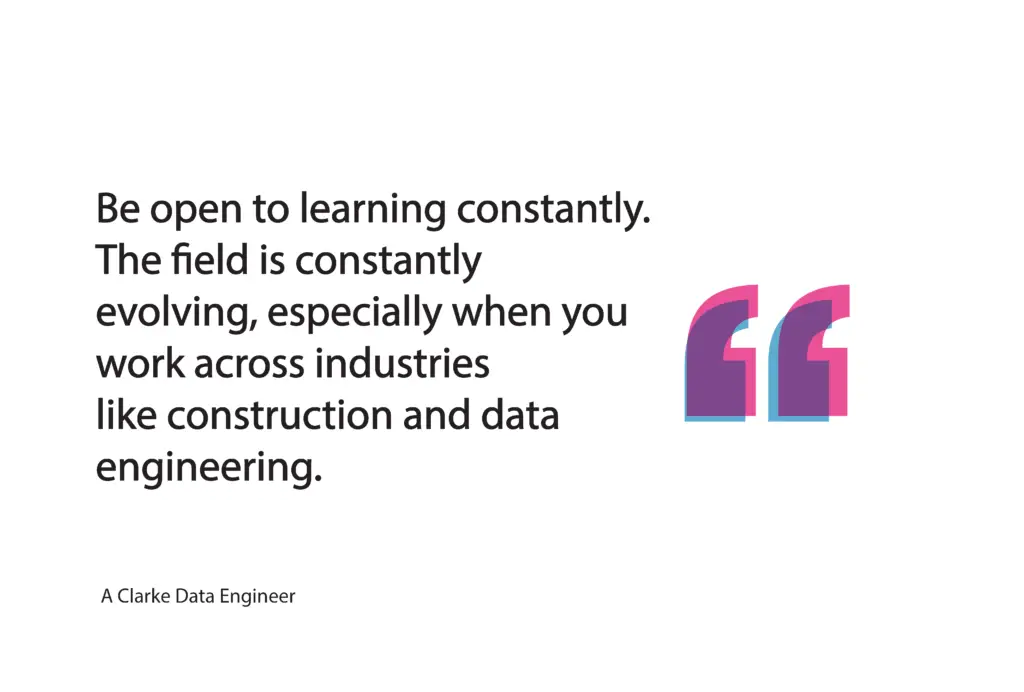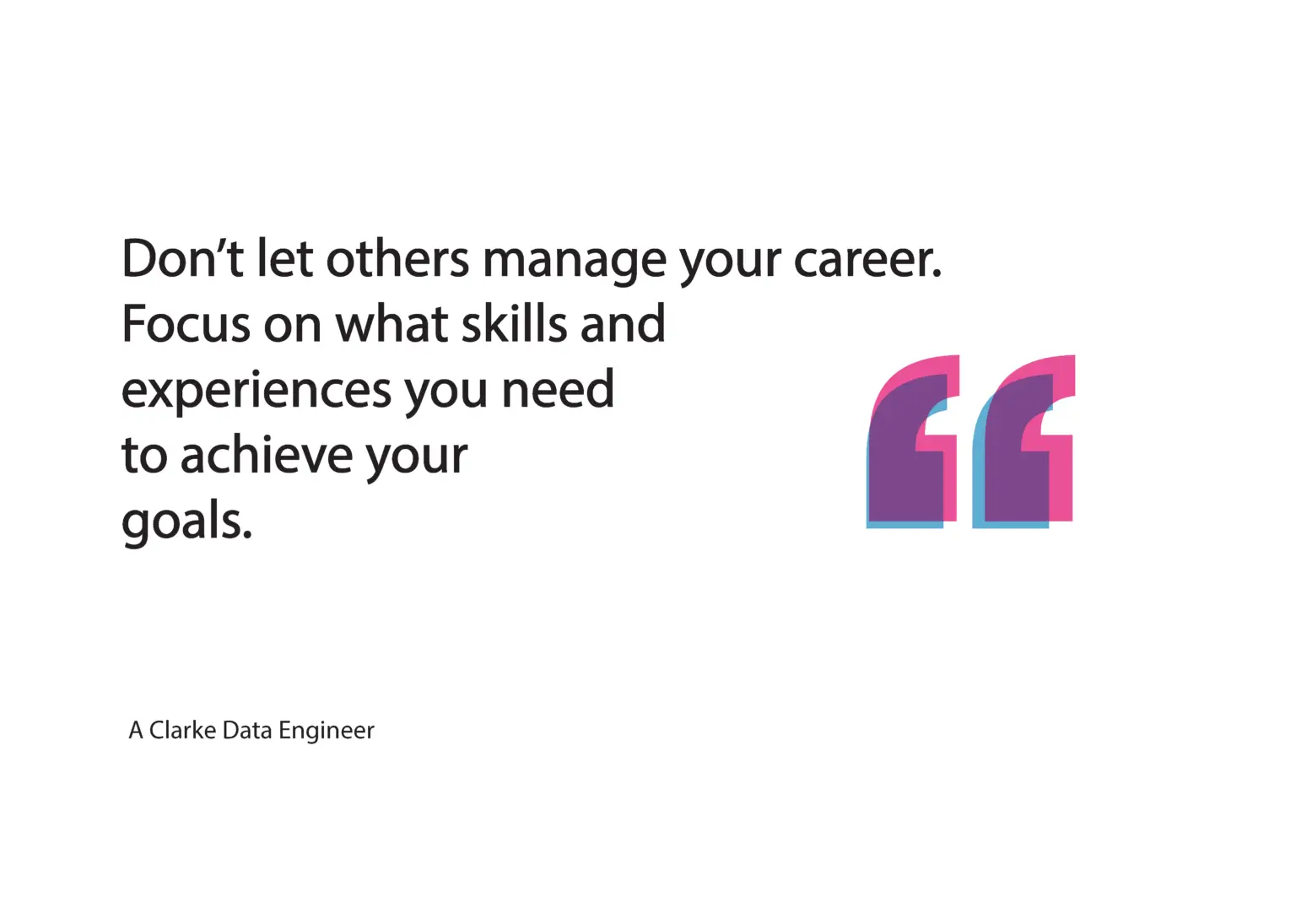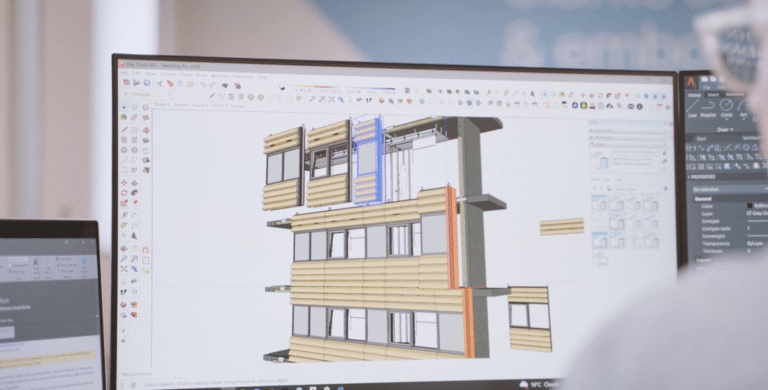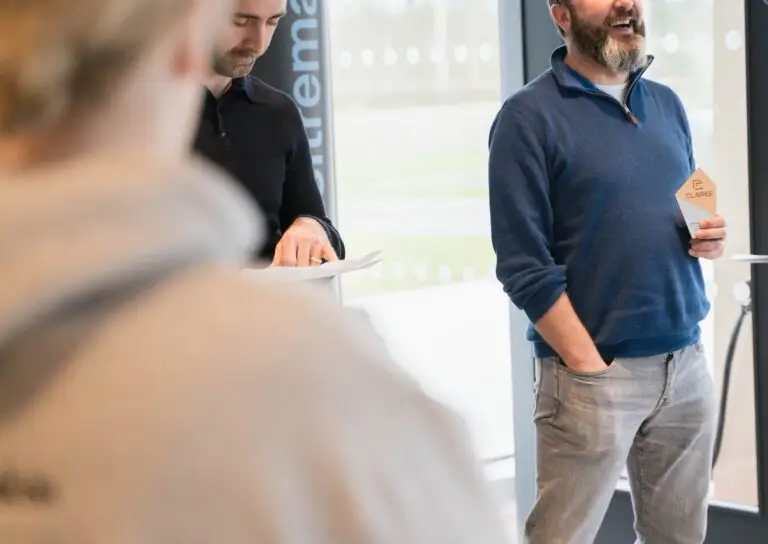Behind the Hardhat
A Day in the Life of a Clarke Data Engineer
How did you get started in the industry?
I began with a degree in Mechanical Engineering and worked in mechanical building services within the construction industry.
After some time, I pursued a master's in Quantitative Finance, which opened up new opportunities in data and machine learning. I spent a year in tech in London before returning home and transitioning into a data engineering role in construction.
What abilities and expertise are needed to succeed in the role of a Data Engineer?
You need strong problem-solving skills, an understanding of databases, programming languages like Python and SQL, and the ability to work with large data sets. An understanding of the construction industry’s processes is also helpful, especially when applying data insights to improve operations.
I started in mechanical engineering and combining that experience with my skills developed in data made construction a perfect fit. It allowed me to apply data-driven solutions to improve processes in an industry that I already understood well, making the work both challenging and rewarding.
What guidance or recommendations would you offer to someone aspiring to work in your role?


Gaining knowledge in both areas will make you a stronger candidate.
What do you consider to be your most significant professional achievement?
Being accepted into a competitive Machine Learning cohort. The selection process was rigorous, and it validated my technical skills and potential in a specialised field, setting the stage for my career.
Who or what serves as your primary source of inspiration in your professional role?
Tech Leaders who focus on how data can drive meaningful change in traditional industries like construction. Companies such as NPlan in London, which use AI and data to optimise project outcomes in construction, are key drivers of this transformation, showing the real-world impact of integrating technology into conventional sectors.
Which project has been your favourite to work on, and what made it stand out for you?
One of my favourite projects in Clarke, involved consolidating data from multiple sources, like databases and cloud services, to improve tracking and visibility of work progress in our factory. I developed a system to automate reporting on the value of work completed, which included tracking hours, job assignments, and quality assurance data. This solution provided clear insights into the progress and efficiency of our operations, something we previously had no visibility on, and helped the team make more informed decisions on a weekly basis.
Can you highlight a project that stands out in your career, either due to its significance or the experience it provided?
While my favourite project had a significant impact, I’ve always been interested in working on more advanced data-driven automation systems that would further enhance our factory operations. I would love to have delivered a more comprehensive solution that not only tracks Earned Value but also integrates predictive analytics to forecast future progress and resource needs.
What is the most valuable professional advice you have received?


What aspects of your role do you find most challenging?
Sometimes, it can be challenging to get others in the construction industry to see the long-term value of data when they’re used to traditional methods.
What challenges has your organisation encountered?
One of the biggest challenges has been adopting digital solutions and data-driven approaches in a traditional industry like construction. Implementing new systems and technologies often requires a cultural shift within the company.
Which elements of your job do you enjoy the most?
The variety—one day I could be cleaning and visualising project data, and the next, building a solution to track resources across multiple sites.
- A Clarke Data Engineer
You may also like...
Day in the life of Clarke BIM & Digital Design...
Day in the life of Clarke HR Officer
Clarke Pre Construction Engineer
Clarke Estimator




